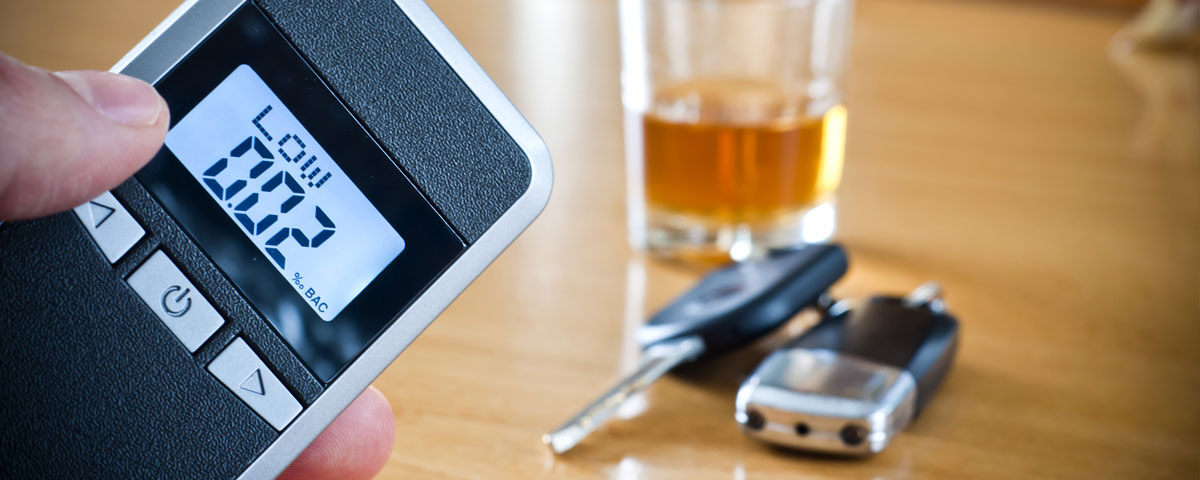Yes, under North Carolina DWI law (N.C.G.S. 20-138.1), a person may be convicted of the criminal offense of Driving While Impaired even if their Blood Alcohol Concentration (BAC) is equal or less than .08.

Appreciable Impairment & DWI
The person may be arrested and convicted under what is known as the ‘appreciable impairment’ theory or prong. Under the ‘appreciable impairment’ theory, a person may be arrested and convicted for the offense of Driving While Impaired when the person’s mental and physical faculties are appreciably impaired at the time of driving. The appreciable impairment theory is also used in conjunction with the drug prong of N.C.G.S. 20-138.1 to prove impairment when someone is driving after “having any amount of a Schedule I substance in his or her system.”
When prosecutors (Assistant District Attorneys) are attempting to prove a Driving While Impaired case, the State has the burden to prove beyond a reasonable doubt all the elements of Driving While Impaired have been satisfied.
The State must prove the following elements for Driving While Impaired in North Carolina:
- A vehicle was being driven; and
- The vehicle being driven was on a street, highway, or public vehicular area; and
- The defendant had any amount of a Schedule I substance in his system, or had a BAC of .08 or greater at a relevant time after driving to show that the alcohol had been consumed during or prior to driving, or the defendant consumed a sufficient quantity of an impairing substance such that the person’s bodily or mental faculties were appreciably impaired at the time of driving.
An initial side regarding ‘vehicles’ under the amended 2006 statute, N.C.G.S. 20-138.1(e), the North Carolina General Assembly specifically exempted horses from classifying as ‘vehicles’ under the statute.
What does it mean to be appreciably impaired?
Returning to the ‘appreciable impairment’ theory, it must be noted that appreciably impaired is just that, visibly or demonstrably impaired, not grossly impairment, but also not just simply impaired. In State v. Harrington, 78 N.C. App. 39, 336 S.E.2d 852 (1985), the North Carolina Court of Appeals defined ‘appreciable impairment’ in the Driving While Impaired context as not rising to the level of gross impairment where one is falling down drunk, but the smell of alcohol or consumption of alcohol alone is not indicative of appreciable impairment. Appreciable impairment is that level of impairment which is noticeable and measurable.
NHTSA Guidelines for Impairment
Dummit Fradin DWI defense attorneys challenge the appreciable impairment theory with the National Highway Transportation Safety Administration (NHTSA) guidelines associated with impairment.
Specifically, in the “Vehicle-in-motion” phase, there are multiple clues of impairment that law enforcement officers are trained to recognize. These impairment clues include weaving, straddling, drifting, swerving, almost striking something, turning with a wide radius, stopping problems, accelerating for no reason, slow speed, and so forth.
Additionally, during the “stop-phase”, there are several clues of impairment including an attempt to flee, no response to a light/siren, abrupt swerve, sudden stop, and striking curb or object.
Moreover, and perhaps most importantly, during the “personal contact phase”, there is a battery of clues associated with impairment such as bloodshot eyes, soiled clothing, fumbling fingers, alcohol containers, drugs and paraphernalia, slurred speech, admission to drinking and so forth.
Lastly, NHTSA has multiple “post-stop” clues such as difficulty with motor vehicle controls, difficulty exiting the vehicle, fumbling driver’s license or registration, etc. that law enforcement officers are trained to look for when assessing an individual’s level of impairment.
Challenging a DWI for Appreciable Impairment
The DWI attorney practice team at Dummit Fradin do not accept these clues as a given in any case. In contrast, Dummit Fradin attorneys diligently prepare and challenge appreciable impairment cases, especially in the absence of evidence of the aforementioned clues.
When a person is charged with Driving While Impaired, the experienced trial team at Dummit Fradin can greatly assist them in making sure they are informed of the strengths and weaknesses of their case, and the Dummit Fradin team diligently strives to leave no stone unturned when litigating Driving While Impaired cases. Specifically, in regards to Driving While Impaired cases predicated upon ‘appreciable impairment’ the seasoned trial team at Dummit Fradin endeavors to vindicate our clients and their rights by arguing against the appreciable impairment theory.
In conclusion, yes. A person can be arrested and convicted for Driving While Impaired with a BAC equal to or less than .08 under the ‘appreciable impairment’ theory or prong. However, the Driving While Impaired practice team at Dummit Fradin is trained and equipped to litigate Driving While Impaired cases founded on appreciable impairment. Contact Dummit Fradin today to learn more.